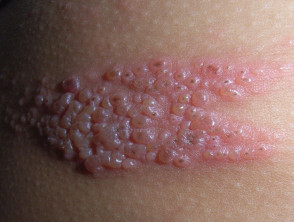2009 Technical Instructions for Vaccination for Civil Surgeons
Preface
On November 13, 2009, the Centers for Disease Control and Prevention (CDC) adopted specific vaccination criteria that would be required for any person who seeks an immigrant visa or adjustment of status for U.S. permanent residence. Previously, the amendment to the Immigration and Nationality Act (INA) required that applicants for immigrant visas and adjustment of status receive all routine vaccinations recommended by the Advisory Committee on Immunization Practices (ACIP) for the U.S. domestic population.
The ACIP is an advisory committee that makes general recommendations on immunizations, including safe and effective vaccination schedules. Prior to 2009, ACIP recommendations had been applied to applicants for immigrant visas and adjustment of status without consideration for the unique characteristics of this population. While routine ACIP vaccination recommendations are appropriate for the general U.S. population, specific criteria for vaccination requirements for adjustment of status applicants outlined below take into consideration the potential of vaccine-preventable diseases to cause outbreaks and/or be introduced and transmitted in the United States. Several vaccines specifically listed in the INA as routinely recommended vaccines by ACIP also continue to be required.
The specific vaccination criteria for any person who seeks an immigrant visa or adjustment of status for U.S. permanent residence are as follows:
-
The vaccine must be an age-appropriate vaccine as recommended by ACIP for the general U.S. population,
AND
- At least one of the following:
- The vaccine must protect against a disease that has the potential to cause an outbreak. An outbreak is defined as the occurrence of more cases of disease than expected in a given area or among a specific group of people. The outbreak must occur over a given period of time. For endemic diseases, an outbreak occurs when incidence rises about the normally expected level. For diseases with seasonal variation, the average incidence rates over particular weeks or months of previous years, or average high or low levels over a period of years, may be used as baselines.
- The vaccine must protect against a disease that has been eliminated in the United States or is in the process of being eliminated in the United States.
Further information on the vaccination criteria is available at Notice of Revised Vaccination Criteria for U.S. Immigration
The following age-appropriate vaccinations are required for adjustment of status applicants, based on the above criteria or per INA Section 212 (8 U.S.C. 1182)(a)(1):
- Diphtheria
- Tetanus
- Pertussis
- Polio
- Measles
- Mumps
- Rubella
- Rotavirus
- Haemophilus influenzae type b
- Hepatitis A
- Hepatitis B
- Meningococcal
- Varicella
- Pneumococcal
- Influenza
The instructions in this document supersede all previous vaccination-related "Technical Instructions," "Updates to the Technical Instructions," and memoranda or letters to civil surgeons. These instructions are to be followed for vaccination requirements for all persons applying for adjustment of status for permanent U.S. residence.
Inquiries regarding vaccination requirements for adjustment of status applicants may be sent to CDC's Division of Global Migration and Quarantine (DGMQ) at cdcqap@cdc.gov.
Significant Changes in the Vaccination Requirements
- Human papillomavirus vaccine and zoster vaccine are no longer required.
- All other age-appropriate, ACIP-recommended vaccines continue to be required.
Significant changes to U.S. immigration vaccination requirements since the last revision of the "Technical Instructions to Civil Surgeons for Vaccination Requirements" are—
- Human papillomavirus vaccine does not need to be given to females 11 through 26 years of age.
- Zoster vaccine does not need to be given to persons 60 years of age or older.
- Meningococcal conjugate vaccine, specifically tetravalent meningococcal conjugate vaccine (MCV4), should be given to persons 11 through 18 years of age. Meningococcal polysaccharide vaccine (MPSV) or other forms of meningococcal conjugate vaccine (e.g., monovalent MCV) is not an acceptable alternative for this age group.
- Influenza vaccine is required for applicants 6 months through 18 years of age during the influenza (flu) season. Influenza vaccine continues to be required for adults 50 years of age or older.
Further information and updates on the required vaccines are available at CDC's DGMQ website,http://www.cdc.gov/ncidod/dq/health.htm, and CDC's National Center for Immunization and Respiratory Disease (NCIRD) website, http://www.cdc.gov/vaccines.
Procedure for Vaccination Assessment Status
The following instructions have been developed to provide guidance to civil surgeons performing medical examinations and assessments of vaccination status for any person who seeks adjustment of status for U.S. permanent residence.
- Determine the age of each applicant.
- Review each applicant's medical history and records.
- Determine the vaccines each applicant needs.
- Assess contraindications and precautions.
- Assess each applicant's laboratory needs.
Vaccination Requirements for Adjustment of Status Applicants
All adjustment of status applicants must be assessed for vaccination requirements (Table). The civil surgeon must review all vaccination records presented by the applicant during this process and record the vaccination assessment results on Form I-693, Vaccination Record.
The required vaccines based on the applicant's age at the time of the medical evaluation must be administered. Age-based immunization schedules recommended by ACIP should be followed and are available at: http://www.cdc.gov/vaccines/recs/schedules. For example, if the applicant is 12 months of age at the time of the examination, then he or she is required to receive the following vaccines if he or she had never received them previously:
- Diphtheria, pertussis, and tetanus (DTP) or diphtheria, tetanus, and acellular pertussis (DTaP) or diphtheria and tetanus (DT)
- Inactivated poliovirus (IPV)
- Measles, mumps, and rubella (MMR) or measles, mumps, rubella, and varicella (MMRV)
- Haemophilus influenzae type B (Hib)
- Hepatitis A
- Hepatitis B
- Varicella (if no history of varicella disease)
- Pneumococcal conjugate vaccine
- Influenza (if flu season)
Note: If the applicant receives MMRV, then he or she does not need to receive the single-antigen varicella vaccine.
For example, if the applicant is 35 years of age, then he or she is required to receive tetanus and diphtheria toxoids vaccine (Td) or diphtheria and tetanus toxoids and acellular pertussis antigen vaccine (Tdap), MMR, and varicella (if no history of varicella disease). If the applicant had previously received a dose or doses of a required vaccine but had not completed the series, then the next required dose should be administered according to standard ACIP recommendations.
The civil surgeon may refer the applicant to another health-care provider to have the required vaccinations administered. In such a case, the civil surgeon must not complete the form until the applicant returns with a written record from the referral health-care provider that notes the vaccines administered and the dates of administration.
If the civil surgeon administers the vaccines, he or she must screen the applicant for contraindications and discuss with the applicant any potential adverse reactions. After administering any needed vaccines, the civil surgeon must complete Form I-693 and give the form to the applicant in a sealed envelope, which the applicant will present to U.S. Citizenship and Immigration Services (USCIS). A copy of the completed vaccination record in Part 2, Section 5, must also be provided to the applicant for his or her personal records. After the applicant has received the required vaccinations and Form I-693 has been completed, the applicant has fulfilled the vaccination requirements for adjustment of status for U.S. permanent residence.
Because completion of the vaccine series often requires several months, applicants are not required to have received all doses of the ACIP-recommended vaccines to fulfill the vaccination requirements for adjustment of status to U.S. permanent residence. Rather, they are required to have received at least one dose of each recommended vaccine, and they are encouraged to follow up with their primary health-care provider to complete the series.
Vaccination Requirements for Refugees and Procedure for Determining Refugee Status
The USCIS, formerly the Immigration and Naturalization Services (INS), has determined that the vaccination requirements do not apply to refugees at the time of their initial admission to the United States. However, refugees must meet the vaccination requirements when they apply for adjustment of status for permanent resident status in the United States (1 year or more after arrival). For a refugee, the adjustment of status application includes the medical examination report issued by a panel physician overseas and Form I-693, indicating the vaccination assessment performed by a civil surgeon or designated health department in the United States.
All refugees must be assessed for vaccination requirements only. A civil surgeon must obtain the applicant's I-94 form (Arrival-Departure Record) to determine whether the applicant was admitted to the United States as a refugee pursuant to INA Section 207. The civil surgeon must verify that the I-94 form belongs to the applicant by comparing it with other identification documents, keeping in mind that many refugees might not have passports.
Once the applicant is determined to be a refugee applying for adjustment of status in the United States, the civil surgeon must review all vaccination records presented by the applicant and record the vaccination assessment results on Form I-693. Those vaccines determined to be required must be administered.
Health Departments Acting as Civil Surgeons for Refugees
In 1998, USCIS provided a blanket designation for health departments to function as civil surgeons for refugees adjusting their status. To act as a civil surgeon, a health department must have a physician or physicians who meet the legal definition of a civil surgeon. This blanket designation to health departments applies only to the vaccination assessment of refugees. The terms of the blanket civil surgeon designation do not apply to the vaccination assessment of an applicant who has been granted asylum. Such an applicant must schedule an appointment with a physician who has been designated as a civil surgeon under the usual procedure and undergo a complete medical examination.
Records in Languages Other Than English
Although some civil surgeon offices might have the ability to translate records into English, the responsibility lies with the applicant to provide reliable English translations of all records.
Vaccination Documentation
Acceptable vaccination documentation must come from a vaccination record, either a personal vaccination record or a copy of a medical chart with entries made by a physician or other appropriate medical personnel. Only those records of doses of vaccines that include the dates of receipt (month, day, and year) are acceptable. The document must not appear to have been altered, and dates of vaccinations should seem reasonable. Self-reported doses of vaccines without written documentation are not acceptable.
Vaccinations Received Outside the United States
Since most vaccines used worldwide are from reliable local or international manufacturers, it is reasonable to assume that any vaccine received by an applicant was of adequate potency. However, the vaccination schedules should be consistent with those recommended by ACIP.
Identify Potential Contraindications or Precautions to Vaccination
- Vaccines should not be administered when a contraindication, such as severe allergic reaction to a vaccine component, is present.
- Live attenuated vaccines should not be administered to pregnant women and severely immunosuppressed persons.
The civil surgeon should identify any past or present condition that might be a contraindication or precaution for the administration of a vaccine. A contraindication is a condition in a recipient which is likely to result in a life-threatening problem if the vaccine is given. A precaution is a condition in a recipient that might increase the chance of a serious adverse reaction if the vaccine is administered, or a condition that might compromise the ability of the vaccine to produce immunity.
General contraindications for the administration of a vaccine include:
- Severe (anaphylactic) allergic reaction to a vaccine component or following a prior dose of a vaccine
- Severely immunocompromised conditions that contraindicate receiving live attenuated vaccines, notably MMR, varicella, and intranasal influenza vaccines
- Pregnancy as a contraindication for receiving live attenuated vaccines for MMR, varicella, and intranasal influenza
- Encephalopathy not due to another identifiable cause as a contraindication if it occurs within 7 days of pertussis vaccination.
The following conditions are not contraindications for the administration of a vaccine:
- Mild to moderate local reactions to a previous dose of vaccine
- Mild acute illness (e.g., low-grade fever, upper respiratory infection, diarrhea)
- Recovering from an illness
- Pregnancy for receiving Td, Tdap, inactivated influenza, or hepatitis B vaccine
- Breastfeeding
- Antimicrobial therapy
- Tuberculin skin testing.
Some precautions to vaccination include:
- Moderate to severe acute illness
- Any of the following after a previous dose of DTP or DTaP:
- Fever ≥40.5° C (≥105° F) that is not attributed to another identifiable cause and occurs within 48 hours after vaccination
- Collapse or shock-like state (that is, a hypotonic-hyporesponsive episode), occurring within 48 hours after vaccination
- Persistent, inconsolable crying lasting 3 hours or more, occurring within 48 hours after vaccination
- Convulsions with or without fever, occurring within 3 days after vaccination.
In general, vaccines are deferred when a precaution condition is present. If the decision to defer a vaccine is made, the precaution condition should be recorded as a medical condition and the "Contraindication" waiver box on Form I-693 must be checked.
Contraindications and precautions to specific vaccines are shown at—http://www.cdc.gov/vaccines/recs/vac-admin/contraindications-vacc.htm.
For pregnant women, contraindications and precautions are shown at—http://www.cdc.gov/vaccines/pubs/preg-guide.htm.
Laboratory Evidence of Immunity
- Laboratory evidence of immunity is acceptable for measles, mumps, rubella, hepatitis A, hepatitis B, polio, and varicella.
The civil surgeon should obtain from the applicant a good history of acute, vaccine-preventable diseases, including measles, mumps, rubella, and varicella, to identify any naturally acquired diseases for optional laboratory confirmation. An applicant who provides a reliable written or oral history of varicella disease does not require laboratory confirmation or further vaccination.
Laboratory evidence of immunity is acceptable for the following diseases: measles, mumps, rubella, hepatitis A, hepatitis B, polio, and varicella. The latter is only necessary when a history of varicella disease is questionable.
Acceptable tests for the presence of antibodies are U.S. Food and Drug Administration (FDA)-approved kits or Clinical Laboratory Improvement Amendments (CLIA)-certified kits. In the use of any approved kits, the manufacturer's guidelines or instructions must be followed, including not using a kit past its expiration date or that has not been maintained according to the manufacturer's directions. Standard precautions in drawing blood (e.g., use of disposable gloves and sterile needles) and appropriate needle disposal must also be followed.
Procedure for Completing Form I-693, Vaccination Record
The civil surgeon is responsible for—
- Completing the applicant identification information and all other sections of Form I-693.
- Until the I-693 is modified to remove vaccines no longer required, a line should be marked across human papillomavirus and zoster vaccines, and "Not Required" should be written.
- Copying the dates of all acceptable documented vaccinations from written records and any vaccines administered by the civil surgeon at the time of the overseas assessment in the appropriate "Date Received" box in Part 2 (Medical examination), Section 5 (Vaccinations). Any vaccine administered by the civil surgeon is to be indicated in the "Vaccine Given/Date Given by Civil Surgeon" box of Form I-693.
- Doses should be recorded chronologically (month, day, and year as numbers corresponding to mm/dd/yyyy), from left to right.
- Completing the vaccination series.
- If the applicant has completed the vaccination series, the "Completed Series" box for each vaccine must be checked on Form I-693.
- If as a result of a laboratory test, the applicant is identified as fully immune, the month, date, and year of the test must be written in the "Completed Series" box for each applicable vaccine.
- If a reliable written or oral history of varicella disease is given, "VH" (varicella history) must be written in the "Completed Series" box for varicella.
- Reviewing any incomplete vaccination series to determine if eligible for a blanket waiver.
A blanket waiver is a waiver that is applied uniformly to a group of conditions and does not require a separate waiver application or fee to be filed with USCIS. In many cases, it might not be medically appropriate to administer a dose of a particular vaccine. Four "Not Medically Appropriate" categories are acceptable when determining an applicant's eligibility for a blanket waiver.
The four "Not Medically Appropriate" categories are—
- Not age appropriate
For each vaccine for which administration is not age appropriate, the "Not age appropriate" waiver box must be checked. For all applicants, this box will need to be checked for at least one vaccine. For example, infants and adults do not need meningococcal vaccine, and adults do not need Hib vaccine.
- Contraindication
If an applicant has contraindications to specific vaccines, the "Contraindication" waiver box for that vaccine must be checked.
- Insufficient time interval between doses
If the minimum time interval between the last documented dose and the next required dose has not passed, the "Insufficient time interval" waiver box for that vaccine must be checked.
If administration of the single dose of a vaccine at the time of the medical examination does not complete the series for that vaccine, the "Insufficient time interval" waiver box must be checked to indicate that additional doses will be needed to complete the series for that vaccine.
- Not flu season
Influenza vaccine is required during the influenza (flu) season. The flu season usually occurs during fall and continues through early spring. In general, influenza activity peaks from December to March. The vaccine should be offered beginning in September and throughout the influenza season. The "Not fall (flu) season" waiver box must be checked at other times of the year.
- Not age appropriate
- Completing "Results" section
After reviewing entries in Section 5 (Vaccinations) for all the vaccines, only one appropriate box under "Results" must be checked.
- Applicant may be eligible for blanket waiver(s).
Completion of a vaccine series is not required to conclude the medical examination, because such a requirement would require multiple visits to a civil surgeon and could lead to unnecessary delay in the immigration process. If any of the boxes under the "Not Medically Appropriate" heading was checked, the "Applicant may be eligible for blanket waiver(s) as indicated above" box must also be checked. This box will probably always be checked because some vaccines may not be age appropriate for the applicant.
- Applicant may request an individual waiver based on religious or moral convictions.
If an applicant objects to vaccination based on religious or moral convictions, the "Applicant will request an individual waiver based on religious or moral convictions" box must be checked. This is not a blanket waiver, and the applicant will have to submit a waiver request to USCIS.
- Vaccine history is complete for each vaccine.
If the applicant has met the vaccination requirements, i.e., completed the series for all required vaccines, the "Vaccine history complete for each vaccine, all requirements met" box must be checked.
- Applicant does not meet immunization requirements.
If an applicant's vaccine history is incomplete and the applicant refuses administration of a single dose of any required vaccine that is medically appropriate for the applicant, the "Applicant does not meet immunization requirements" box must be checked.
The civil surgeon should review the entire Form I-693 for completeness and accuracy before signing the document. The document must be legible, and all names and dates must be either printed or typed. The civil surgeon's signature on this document signifies the reliability of the document to the best of the physician's knowledge.
The primary intent of this document is for presentation to USCIS to meet vaccination requirements for adjustment of status for U.S. permanent residence. However, an extra copy of the vaccination section should be provided to the applicant as an important vaccination record that may be used later by other health-care providers, schools, and other institutions.
- Applicant may be eligible for blanket waiver(s).
Vaccine Handling, Storage, and Administration
Proper handling and storage of vaccines are important to ensure the potency of vaccines. If vaccines are not properly handled or stored, their potency is reduced, and they may not produce immunity.
Guidance on storage and handling of vaccines is available at the CDC's NCIRD website:http://www.cdc.gov/vaccines/pubs/vac-mgt-book.htm.
Vaccine Adverse Event Reporting System (VAERS)
VAERS is a voluntary reporting system used by the FDA and CDC to receive and analyze reports about adverse events that might be associated with vaccines identified in the National Childhood Vaccine Injury Act. VAERS encourages the reporting of all clinically significant adverse events following the administration of any vaccine, whether or not the vaccine is believed to be the cause of the event. The FDA monitors reports to determine whether any vaccine lot has a higher than expected reporting rate of adverse events. Anyone can report an adverse event 24 hours a day. Additional information can be obtained by calling 1-800-822-7967 or viewing the VAERS website at http://vaers.hhs.gov/![]() .
.
Counseling and Resources
Vaccine Information Statements
The National Childhood Vaccine Injury Act requires all health-care providers in the United States who administer vaccines to provide a copy of the relevant Vaccine Information Statement (VIS) to either the adult vaccinee or, in the case of a minor, to the parent or legal representative. In addition to the VIS, health-care providers should give visual and oral explanations of each vaccine. Camera-ready copies of VISs can be obtained from a local or state health department's immunization program. To determine if the VIS is the most up-to-date version, see the VIS section website athttp://www.cdc.gov/vaccines/pubs/vis/.
There are no "official" CDC translations of the VIS into other languages. Several states have provided translations, and some providers may translate the VIS into other languages. VISs are also available through the Immunization Action Coalition's website at http://www.immunize.org![]() .
.
Advisory Committee on Immunization Practices (ACIP) Statements
ACIP statements are published in the Morbidity and Mortality Weekly Report (MMWR) periodically. Updated ACIP recommendations are available at CDC's website: http://www.cdc.gov/vaccines
Epidemiology and Prevention of Vaccine-Preventable Diseases
The CDC Pink Book, Epidemiology and Prevention of Vaccine-Preventable Diseases, provides an overview of vaccine-preventable infectious diseases and the corresponding vaccines. It serves as a useful companion to ACIP statements and provides appendices that identify search tools and other useful resources. The Pink Book and other immunization materials are available athttp://www.cdc.gov/vaccines/pubs/pinkbook/.
Clinic Assessment Software Application (CASA)
Clinic Assessment Software Application (CASA) is a menu-driven database developed by CDC as an assessment tool for immunization clinics and providers. This application is used for data entry and analysis of a clinic assessment and includes many special features. CASA provides an extensive body of data that can be accessed and organized to suit individual practice needs. Additional information or a copy of the application can be obtained from the CDC's website athttp://www.cdc.gov/vaccines/programs/cocasa/.
| Vaccine | Age | ||||||||||||||||||||||||||||
|---|---|---|---|---|---|---|---|---|---|---|---|---|---|---|---|---|---|---|---|---|---|---|---|---|---|---|---|---|---|
| Birth-1 Month | 2-11 Months | 12 Months-6 Years | 7-10 Years | 11-17 Years | 18-64 Years | ≥65 Years | |||||||||||||||||||||||
| DTP/DTaP/DT | NO | YES | NO | ||||||||||||||||||||||||||
| Td/Tdap | NO | YES, if 7 years and older (for Td); if 10 years through 64 years (for Tdap-see ACIP schedule); if 65 years and older (for Td) | |||||||||||||||||||||||||||
| IPV | NO | YES | NO | ||||||||||||||||||||||||||
| MMR | NO | YES, if born in 1957 or later | NO, if born before 1957 | ||||||||||||||||||||||||||
| Rotavirus | NO | YES, if 6 weeks to 8 months | NO | ||||||||||||||||||||||||||
| Hib | NO | YES, if 2 months through 59 months | NO | ||||||||||||||||||||||||||
| Hepatitis A | NO | YES, if 12 months through 23 months | NO | ||||||||||||||||||||||||||
| Hepatitis B | YES, birth through 18 years | NO | |||||||||||||||||||||||||||
| Meningococcal (MCV4) | NO | YES, if 11 years through 18 years | NO | ||||||||||||||||||||||||||
| Varicella | NO | YES | |||||||||||||||||||||||||||
| Pneumococcal | NO | YES, if 2 months through 59 months (for PCV) | NO | YES (for PPV) | |||||||||||||||||||||||||
| Influenza | NO | YES, 6 months and older (annually each flu season) | |||||||||||||||||||||||||||
DTP=diphtheria and tetanus toxoids and pertussis vaccine; DTaP=diphtheria and tetanus toxoids and acellular pertussis vaccine; DT=pediatric formulation diphtheria and tetanus toxoids; Td=adult formulation tetanus and diphtheria toxoids; Tdap=adolescent and adult formulation tetanus and diphtheria toxoids and acellular pertussis vaccine (Boostrix for persons 10-64 years old; Adacel for persons 11-64 years old); IPV=inactivated poliovirus vaccine (killed); MMR=combined measles, mumps, and rubella vaccine; Hib=Haemophilus influenzae type b conjugate vaccine; MCV=meningococcal conjugate vaccine; PCV=pneumococcal conjugate vaccine; PPV=pneumococcal polysaccharide vaccine.
Adapted from ACIP recommendations.
Updates for Civil Surgeons
Guidance based on 2010 Recommendations for the Seasonal Influenza (Flu) Vaccine
Glossary of Abbreviations
- ACIP - Advisory Committee on Immunization Practices
- CASA - Clinic Assessment Software Application
- CDC - Centers for Disease Control and Prevention
- CLIA - Clinical Laboratory Improvement Amendments
- DGMQ - Division of Global Migration and Quarantine
- DT - Diphtheria and tetanus toxoids
- DTaP - Diphtheria and tetanus toxoids and acellular pertussis vaccine
- DTP - Diphtheria and tetanus toxoids and pertussis vaccine
- FDA - Food and Drug Administration
- Hib - Haemophilus influenzae type b conjugate vaccine
- INA - Immigration Nationality Act
- INS - Immigration and Naturalization Services
- MCV - Meningococcal conjugate vaccine
- MMR - Measles, mumps, and rubella vaccine
- MMRV - Measles, mumps, rubella, and varicella vaccine
- MMWR - Morbidity and Mortality Weekly Report
- MPSV - Meningococcal polysaccharide vaccine
- NCIRD - National Center for Immunization and Respiratory Diseases
- NCVIA - National Childhood Vaccine Injury Act
- PCV - Pneumococcal conjugate vaccine
- PPV - Pneumococcal polysaccharide vaccine
- Td - Tetanus and diphtheria toxoids
- Tdap - Tetanus and diphtheria toxoids and acellular pertussis vaccine
- USCIS - United States Citizenship and Immigration Services
- VAERS - Vaccine Adverse Event Reporting System
- VIS - Vaccine Information Statement
-------------------------------------------------------------------------------------------------------
- Page last reviewed: March 29, 2012
- Page last updated: November 16, 2010
- Content source: Centers for Disease Control and Prevention
National Center for Emerging and Zoonotic Infectious Diseases (NCEZID)
Division of Global Migration and Quarantine (DGMQ)
Source
2009 Technical Instructions for Vaccination for Civil Surgeons
Centers for Disease Control and Prevention






